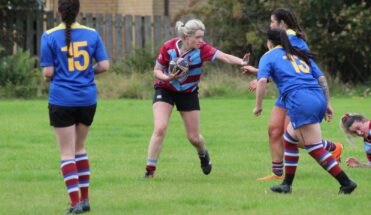Trying to be too strong for too long
Today is World Mental Health Day. Scottish Rugby believes the mental wellbeing of everyone connected with the game is important 24/7 and 365 days of the year.
More of our employees, particularly those in support roles to professional and Academy players, are being trained in mental wellbeing first-aid and our award-winning Rugby For Life programme continues to look at what support can be given, even if, on occasions, there is a reluctance (perhaps understandable?) to ask for help.
Here’s a scenario a few rugby players, present and past, might recognise.
You play rugby at school or with a club’s youth team and you are, for want of a better phrase, the “star player.”
You’re the first name down on the team-sheet, the “go-to” player as far as coaches and your peers are concerned.
You start to win recognition beyond your club and school, playing in representative teams and, perhaps you are offered a place at an Academy.
Physically, you work incredibly hard on your game. You are dedicated. You make sacrifices. While some of your friends are out partying (or were before COVID-19) you have an early night as you have a big match tomorrow.
You win a place in an international age-grade squad and might even, ultimately, win full international honours.
And then, something happens. It could be an injury or a series of injuries. It could be something in your personal or home life. It could be that a coach reckons another player is better than you. Financial climates might change, cost-cutting might be required, and your services might be dispensed with.
In that situation, what do you do? How do you cope with a knock-backs of varying severity? How do you process “failure”?
Being at the top of the tree in any profession isn’t easy. But in elite sport, well if it were meant to be easy, there would be 36,000 Scottish international rugby players, right?
So, do you think, given that you are hugely competitive and given what you have done to achieve, that it would be ok to say that your mental health is struggling and to ask for help?
While the stigma around mental health has happily diminished in many spheres in recent years as awareness has grown, particularly in areas of sport which some see as the ultimate displays of machismo, the reality is that it’s been a harder message to get over.
Scottish Rugby’s player liaison officer, Ben Atiga, champion of Rugby for Life and a former All Black to boot, acknowledges that an ongoing culture shift is required to ensure players especially do not regard asking for help on the mental side as a weakness.
He said: “Rugby can be a physical, tough, brutal, highly intense and competitive environment and obviously if you say something around the mental side it could be perceived as showing a weakness by the individual who is affected.
“We work hard in our workshops to train our support team to be able to identify some of the triggers or changes in a player’s behaviour in order that we can support players who are struggling.
“You can put all the support in front of them but, ultimately, it comes down to the individual wanting that help.
“Through the Rugby for Life programme we are trying to create a culture shift in the way that folk in our sport think about mental health.
“We want to make the clubhouse a safe place for them to put their hand up without judgement or ridicule and say: ‘I’m struggling this week and need some professional help’.
“Ideally you want to get to the point where players can talk to their team-mates on this.”
Former Scotland 7s and age-grade back, Graham Hogg, older brother of Scotland captain Stuart, can identify with so much of the scenario that we presented at the start of this story.
He reckons that for seven or eight years he bottled things up to such an extent that he was on a “path to self-destruction” because he had not sought help on his mental well-being after he had sustained a serious knee injury.
“It’s not a weakness,” he asserts. “It’s you, being you, trying to be too strong for too long and bottling everything up.
“When I did talk about how I was feeling, and I know it sounds a cliché, it was a massive lift, it was a massive weight off my shoulders being able to break down problems from there and knowing it was not just me trying to deal with them in isolation.
“Taking that first step and getting out there was hard, but it was by far the best thing I have done.
“If I had not done that, I’m not sure I would still be here, though I don’t want to be too brutal about it,” he added.
Graham has played a key role in establishing the Make Minds Move charity, which further underlines a desire to share his experiences, however painful, and then help others.
So, today on World Mental Health Day, particularly, as we all try to deal with the Coronavirus pandemic, the over-arching message from both Ben and Graham is to look out for each other and not to be afraid to ask for help.
- Visit Scottish Rugby’s Mental Health page HERE
- If you are having concerns at a club, Scottish Rugby recommends Breathing Space as an organisation with which we have already worked in unison, for example at Stewartry RFC in Castle Douglas and GHA in Glasgow.
Related Fanzone
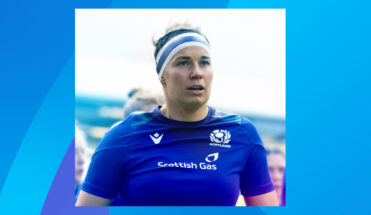
Podcast: Rachel Malcolm | One to one with Caroline Blair

Guide to the Games | Round 2

WATCH LIVE: 2024 Silver Saturday

Silver Saturday preview: Scottish Cup final: Edinburgh Academical v Hawick

Silver Saturday preview: Sarah Beaney Cup: Watsonians v Hillhead Jordanhill
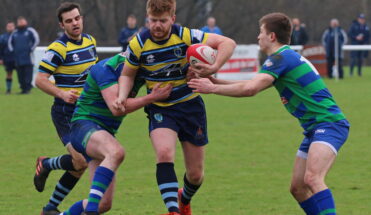
Silver Saturday Preview: Men’s League Cup final: Lasswade v Falkirk
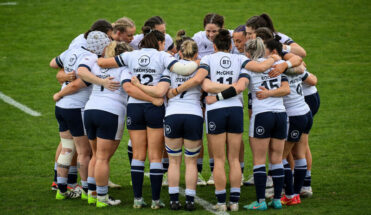

Watch: Rise Now | Bounce back in Parma

Silver Saturday Preview: Men’s Shield final: Cumnock v Moray
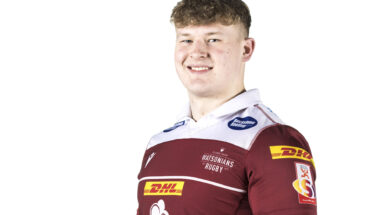
Finn Duraj: Learning from the best
